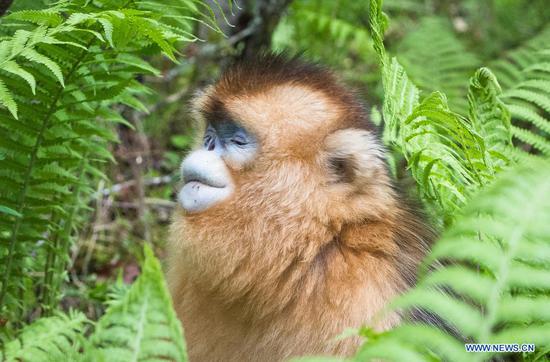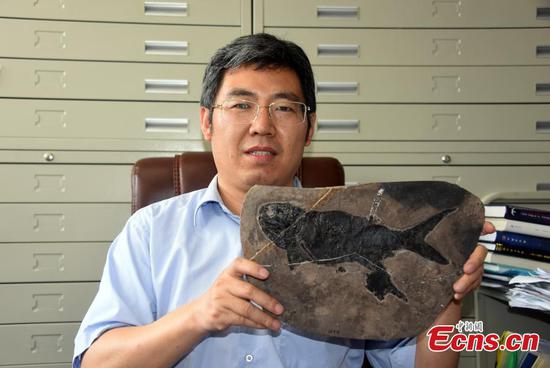
Yunnan snub-nosed monkeys cling to each other at the Baima Snow Mountain Nature Reserve. (Photo by XIAO LIN/for chinadaily.com.cn)
Biodiversity is a cornerstone for the world to build a shared future for all life on Earth. Under the theme of "we are part of the solution," the International Day for Biological Diversity on May 22 this year provides a new chance for the world to discuss solutions to issues including biodiversity loss, climate change, and pollution.
Biodiversity and ecosystems are essential for human health and progress. However, the continued deterioration and degradation of nature have threatened the livelihoods of species. A UN report in 2019 found that around 1 million animal and plant species now face extinction, many within decades. This number is more than ever before in human history.
Biodiversity loss and ecosystem collapse are not only environmental issues. They also affect the health, economy, and social justice of human society. Accordingly, protecting biodiversity and restoring the ecosystem are not just some countries' responsibilities but require more resolve and broader cooperation globally.
In terms of a global undertaking, China has made significant progress in improving environmental quality and boosting biodiversity in its process of high-quality development. The country has facilitated protection laws and regulations for wild animals, national parks, wetlands, and nature reserves to provide biodiversity protection with legal support.
On Jan. 1, a 10-year fishing ban took effect in all key waters of the Yangtze to help the country's longest waterway recover from dwindling aquatic resources and degrading biodiversity. China also announced its goal to peak its carbon dioxide emissions by 2030 and become carbon-neutral by 2060 to address global climate change.
The COVID-19 pandemic demonstrated that human health interconnects with the health of other species. The world cannot revert to the "old normal." It is vital to adopt innovation and nature-based solutions to both the pandemic and green recovery, emphasizing biodiversity protection.
Green development can also benefit the labor market. According to the World Economic Forum, emerging business opportunities across nature could create 191 million jobs by 2030.
In another call for global cooperation on biodiversity conservation, China will host the 15th meeting of the Conference of the Parties to the Convention on Biological Diversity (COP15) in Kunming, Yunnan Province, this year. The event will review the post-2020 biodiversity framework and set new global biodiversity targets for 2030.
Facing biodiversity, nature, pollution, and waste crises, countries should jointly build a better world by committing to collective ambitions and taking long-term actions.


















































